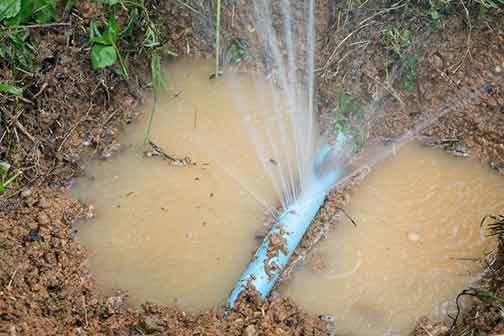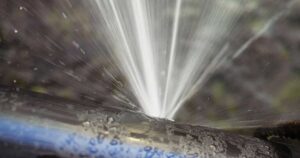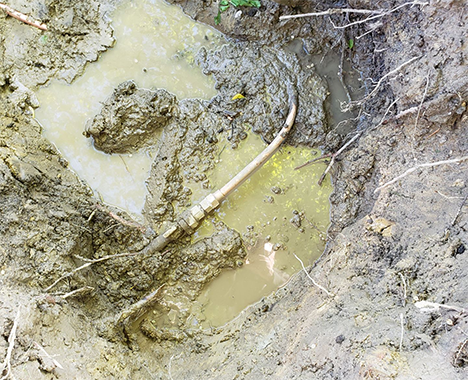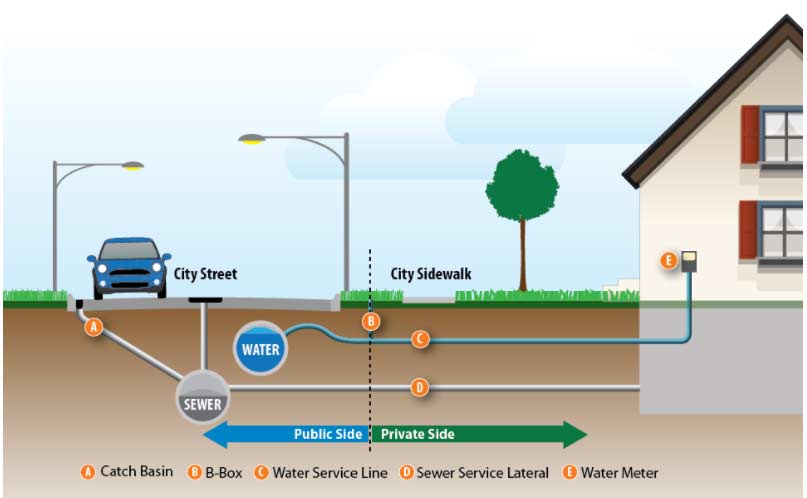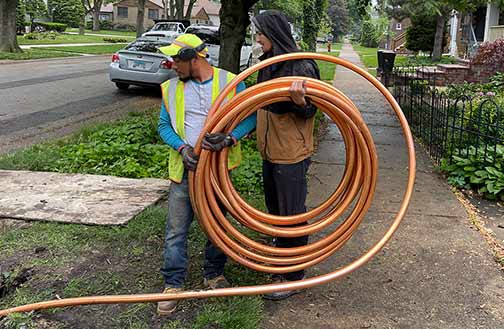Water Line Leak Symptoms
Leaking water lines can cause a host of problems in and around your home. Fortunately, there are several signs that can alert you to a water line leak in your yard. Knowing the symptoms of a water line leak can help you take proactive steps to prevent further damage.
The most common symptom of a main water line leak is standing water in your yard. If you notice an area of your yard that is continually wet and damp, even after the rain stops, there may be a leak in the water service line. Another sign to watch for is an abnormally high water bill. If your water bill is much higher than normal, it could be an indication that you have a water line leak.
Other water leak symptoms include erosion and wet spots in your yard. If you notice an area of your yard that is particularly soggy or has a lot of vegetation dying, it could be a sign that your water line is leaking. You should also look for signs of mold or mildew near the leak. This can be an indication that your water line is leaking and needs to be repaired.
Main Water Line Leak
A water line leak can cause a range of problems in and around your home. The most common problem is water damage. Water can seep into your walls and floors, leading to mold and mildew growth. It can also cause structural damage to your home if the leak is not repaired quickly.
Leaking water lines can also affect your yard. If the water is not contained, it can lead to flooding, erosion, and other damage to the soil and vegetation in your yard. This can be particularly problematic if you have a garden or other landscaping features in your yard.
In addition to damage to your property, a water line leak can also be a health hazard. If the water is not contained and cleaned up, it can lead to the growth of bacteria and other contaminants in the air. This can lead to breathing difficulties and other health concerns.
Water Line Repair
If you suspect a main water line leak in your yard, it’s important to take action quickly. The first step is to shut off the water supply from the water line. This will help to prevent further damage and contamination.
Once the water supply is shut off, it’s time to call a plumber. A professional plumber will be able to assess the situation and determine the best course of action. Depending on the extent of the damage, they may be able to repair the leak or replace the entire water line.
If the leak is minor, the plumber may be able to repair it with a patch kit. However, if the water line is in bad shape, it may be necessary to replace it entirely. This can be a costly and time-consuming endeavor, but it’s necessary to prevent further damage and contamination.
Once the water line is repaired or replaced, it’s important to take other steps to avoid water line leaks in the future. This includes regularly checking and inspecting the water line for signs of damage or wear and tear. You should also make sure that your sprinkler system is in good working order and that it is regularly checked for leaks and other problems.
By taking a proactive approach to water line maintenance and repair, you can help to ensure that your main water line stays in good condition and that you avoid costly water line leaks in the future.
